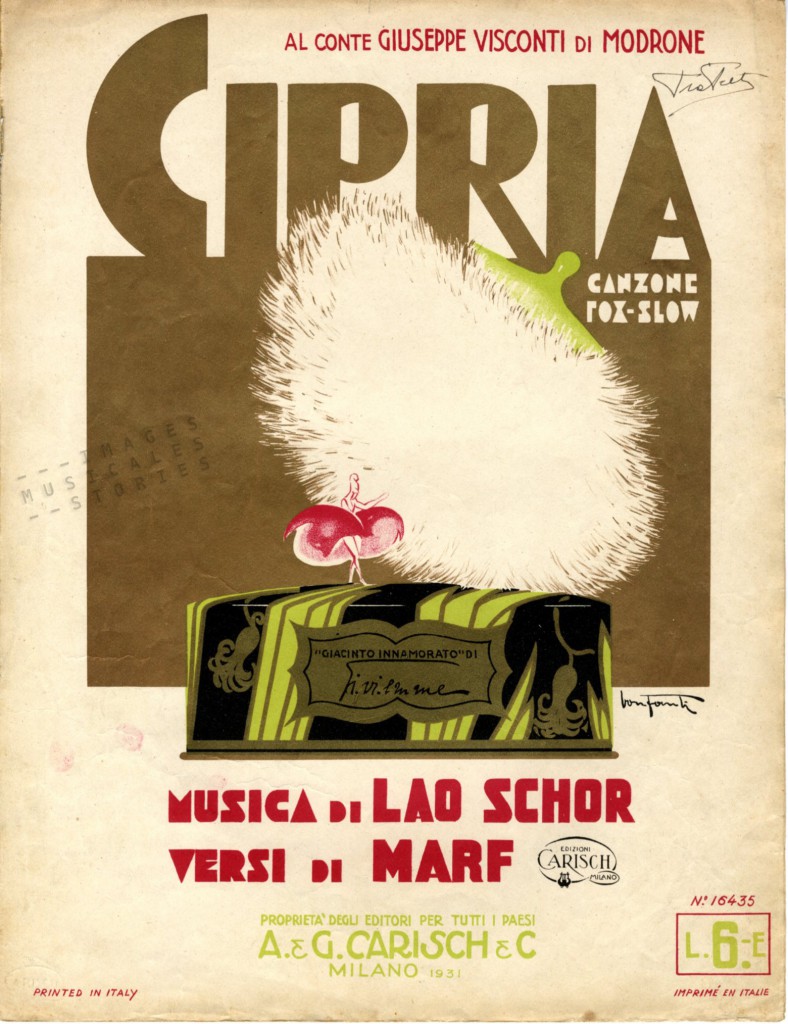
The ‘Cipria’ slow fox-trot sheet music is publicity for a perfumed face powder sold by Gi.vi.emme. Cipria is the Italian word for face powder. Gi.vi.emme, after the initials of its founder Count Giuseppe Visconti di Modrone, was one of the largest perfume houses during the twenties and thirties in Italy.
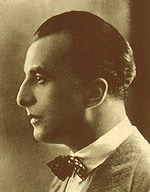
Giuseppe belonged to the Visconti dynasty, that combined one of the oldest Italian aristocratic families with a great Milanese industrial empire. Although Giuseppe was openly bisexual, he married the elegant daughter of a pharmaceutical and cosmetics industrialist, Carla Erba. The couple got seven children, one of whom would become the famous film director Luchino Visconti (Death in Venice, The Damned, The Leopard, …). The family owned some marvellous palaces which would eventually be used by Visconti in his films to recreate the splendour of his own childhood.
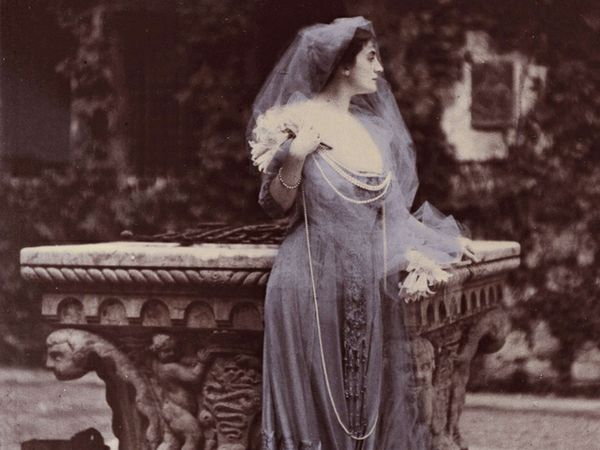
Giuseppe and Carla belonged to the circle of King Vittorio Emanuele III and his wife Queen Helena. Giuseppe even became gentleman-in-waiting to the queen and some say he became her lover. Apparently also Carla had extra marital relations. The Visconti couple was said to live apart. The composers Toscanini and Puccini were their friends, but also the music editor Ricordi and the novelist Gabriele D’Annunzio.
Giuseppe Visconti was a person with eclectic interests. Noblesse oblige: he became patron of the arts, was on the board of directors of the Scala, and managed several theatres. He himself was an amateur actor and liked to put on make up and dress as a woman. The Viscontis enjoyed a private theatre not only in their Milanese palazzo but also in their monumental villa near Lake Como.
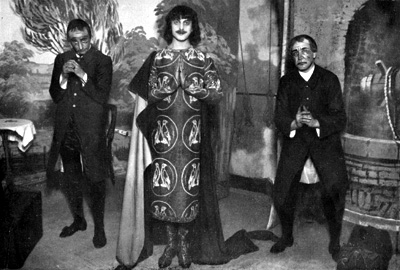
In the first years of the 20th century the romantic Giuseppe Visconti created from some hovels and old stables surrounding a castle falling into ruin, a complete and totally faked but charming medieval village. This place called Grazzano Visconti, near Milan, can still be visited today.
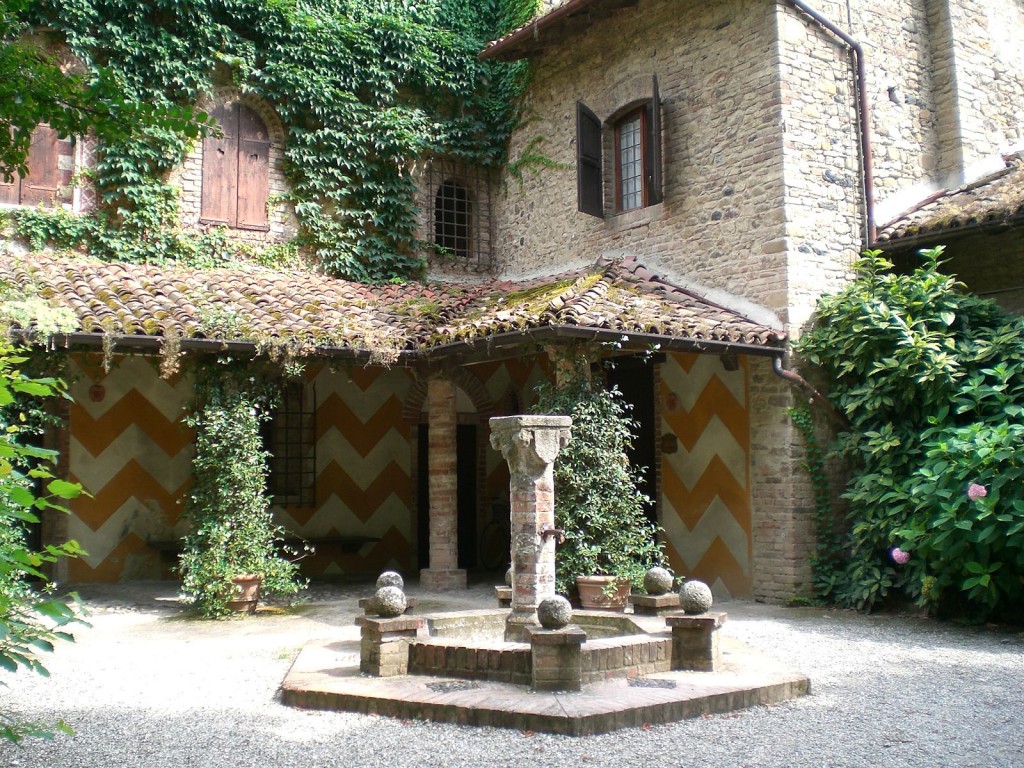
Giuseppe also was director of Inter Milan and an entrepreneur. Asked by his father in law, Giuseppe started to create perfumes. He was so taken by mixing fragrances that he started his own firm: Gi.vi.emme. After the March on Rome in 1922 by which Mussolini came to power in Italy, industrialists felt optimistic to become leaders in their speciality. So did Gi.vi.emme. It wanted to create a new perfume representative of the revolutionary times. To this end they held one of the first nation-wide marketing researches in Italy. The survey took months and as a result Gi.vi.emme created a new fragrance. The writer and family friend Gabriele d’Annuncio tried the perfume and named it Giacinto innamorato, after its main component: the scent of hyacinths.
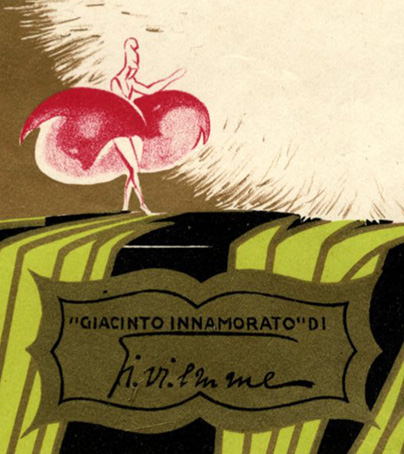
The brand name Giacinto innamorato is of course also noticeable on the ‘Cipria’ sheet music cover, as is the typical Gi.vi.emme signature.
The perfume flacons were packaged and designed in beautiful art-deco style with a lot of rich gold ink.
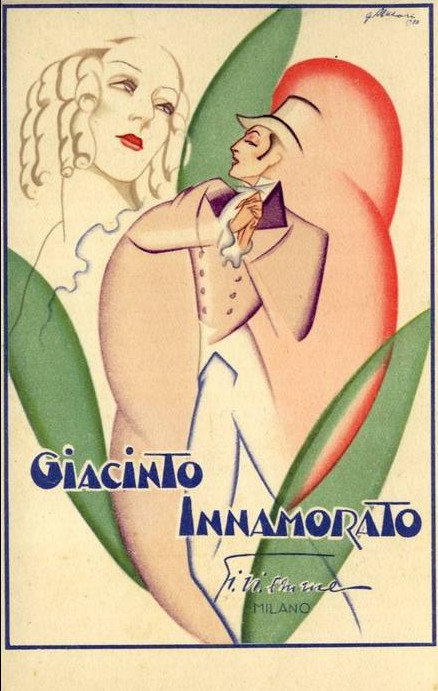
With the help of an intensive publicity campaign Giacinto Innamorato soon became known in the whole country. Before long there would follow other well-known fragrances. Gi.vi.emme stopped its activity in 1970.
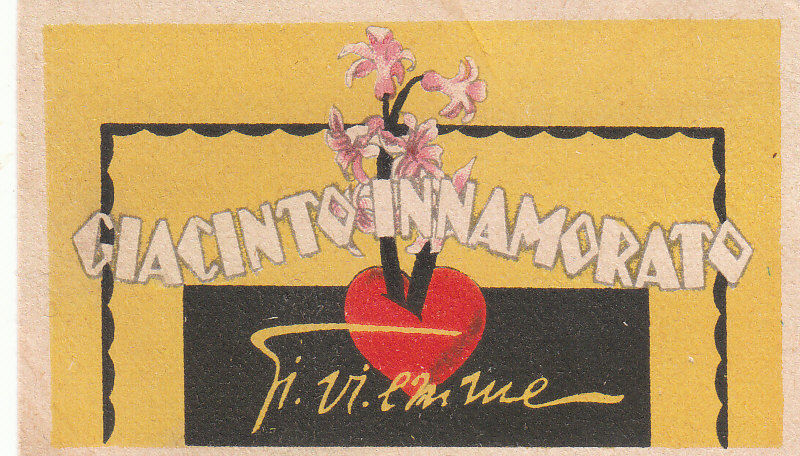
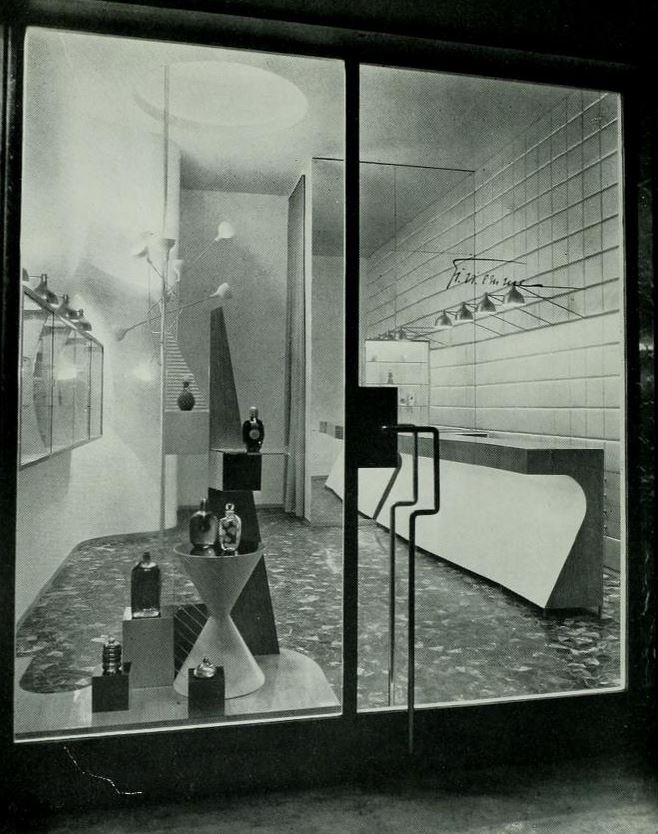
We’ll end this post with an extract from Luchino Visconti’s last film I’Innocente (1976) based on a novel by family friend Gabriele d’Anniunzio. Although Luchino Visconti had Marxist principles, no one was in a better position than him to portrait the elegance and lavishness of the Italian aristocracy as well as their decadence and irresponsibility. The sumptuous costumes and settings were a second nature to him.

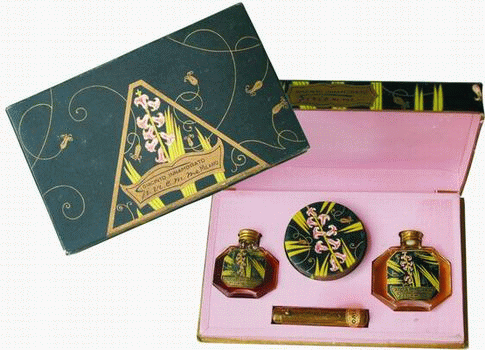
Mooie omslag en mooi verhaal !
Trop beau ! j’aurais dû collectionner les partitions illustrées……..
Merci pour ce plaisir hebdomadaire !
Je ne cesse de m’émerveiller. Où vous arrêterez-vous ? Un jour, nous recevrons des partitions parfumées …
una meraviglia ! grazie mille!